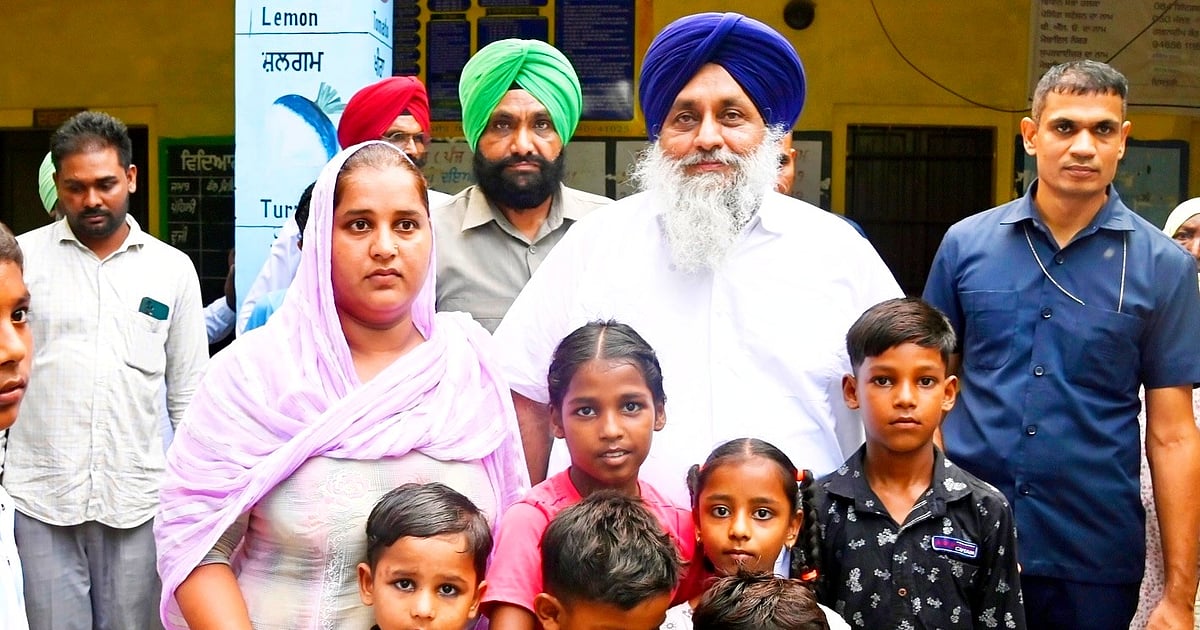 |
|
The resignation of Sukhbir Singh Badal as president of the Shiromani Akali Dal (SAD) marks a pivotal moment for the party, signaling a profound crisis stemming from declining electoral performance and simmering internal dissent. His departure comes after a string of electoral defeats, culminating in the party's abysmal showing in the 2022 Punjab Assembly elections where they secured only three seats, a dramatic fall from their previous standing. This poor performance was compounded by a significant drop in their vote share during the 2024 Lok Sabha polls, highlighting a broader erosion of their political influence within Punjab. The reasons for this decline are multifaceted and complex, but several key factors contribute to the party's current predicament. The prolonged period of incumbency, coupled with the rise of new political forces and shifting public sentiment, undoubtedly played a significant role. The party's perceived inability to adapt to the evolving political landscape and address the concerns of the electorate further exacerbated its weakening position.
The internal turmoil within the SAD, however, represents an equally significant challenge. A faction of dissident leaders, coalescing under the banner of the 'Akali Dal Sudhar Lehar' (Akali Dal Reform Movement), has openly called for a change in leadership, citing a perceived lack of responsiveness to the party's declining fortunes. This faction has been particularly critical of the leadership's alleged disregard for the recommendations of a six-member committee established to analyze the party's dismal performance in the 2022 elections. The accusations leveled against the leadership suggest a deep-seated rift within the party's ranks, threatening to further destabilize an already fragile organization. The dissidents' demands highlight a broader concern within the party regarding the effectiveness of its current strategies and the need for a more inclusive and responsive leadership style.
Adding to the pressure on Badal was the ongoing scrutiny from the Akal Takht, the highest religious authority in Sikhism. He had recently appealed to the Takht to expedite its decision on charges of religious misconduct related to his tenure from 2007 to 2017. These accusations include allegations of mishandling the 2015 sacrilege cases, which sparked widespread protests and significantly impacted the party's image, and the controversial pardon of Dera Sachha Sauda chief Gurmeet Ram Rahim Singh in 2007. These actions alienated significant segments of the Sikh community, contributing to the party's declining popularity. The combination of electoral setbacks, internal dissent, and religious controversies has created a perfect storm that has ultimately led to Badal's resignation.
The process for electing a new SAD president will involve a membership drive, followed by a series of elections at the circle, district, and state levels, culminating in the selection of the new leader. This process underscores the significance of rebuilding party unity and regaining the trust of the Sikh community. This extended process indicates the party's determination to undertake a comprehensive restructuring, potentially involving a wider range of stakeholders and reflecting a commitment to inclusivity. The outcome of this process will significantly impact the party's future direction, influencing not only its internal dynamics but also its overall electoral prospects.
Sukhbir Singh Badal's decade-long tenure as SAD president was marked by both successes and failures. While he successfully led the SAD-BJP alliance to victory in the 2012 Punjab Assembly elections, the party’s fortunes subsequently declined sharply. Internal rifts, growing anti-incumbency sentiment, and the emergence of splinter groups such as SAD (Taksali) and SAD (Sanyukt) further eroded the party's support base. His legacy will be inevitably intertwined with the party’s significant challenges and the outcome of its upcoming internal restructuring. The coming months will be crucial for the Akali Dal as it navigates this period of transition, addresses its internal divisions, and prepares for upcoming elections. The outcome will determine whether this marks a genuine turning point towards revival or a descent into further political irrelevance. The party's ability to reconcile internal differences, attract new supporters, and articulate a compelling vision for the future will be vital in determining its path forward.
The Akali Dal faces a critical juncture. The resignation of Sukhbir Singh Badal represents not simply a change in leadership, but a symptom of a deeper malaise within the party. The party must address its internal divisions, rebuild its fractured relationship with significant segments of the Sikh community, and demonstrate a capacity to adapt to the changing political landscape. Failure to do so could result in a continued decline, potentially marginalizing the Akali Dal in Punjab politics for the foreseeable future. The upcoming leadership election is not merely a procedural matter; it represents an opportunity for the party to chart a new course, reconcile its internal conflicts, and regain its lost credibility. The choice of the next leader will be crucial in determining the Akali Dal's trajectory and its ability to overcome the significant challenges it currently faces.
